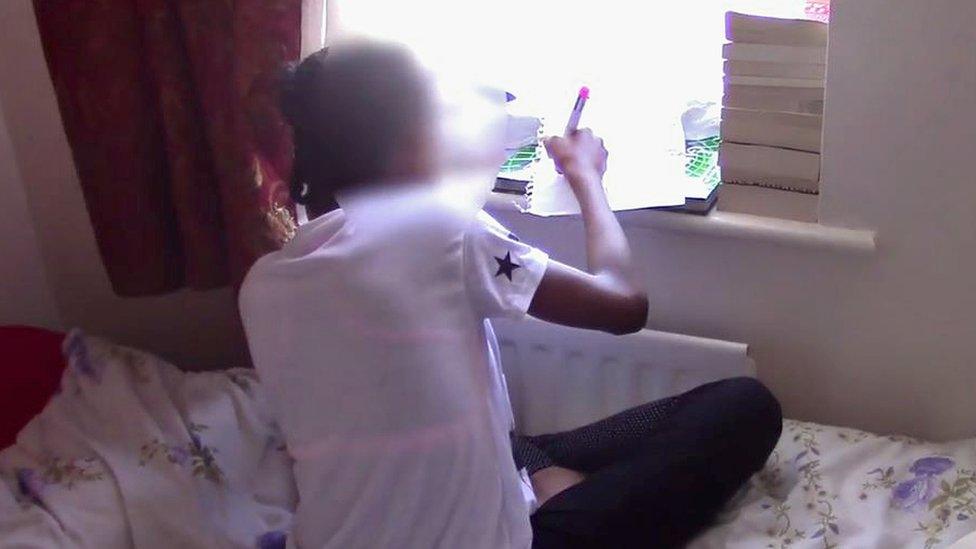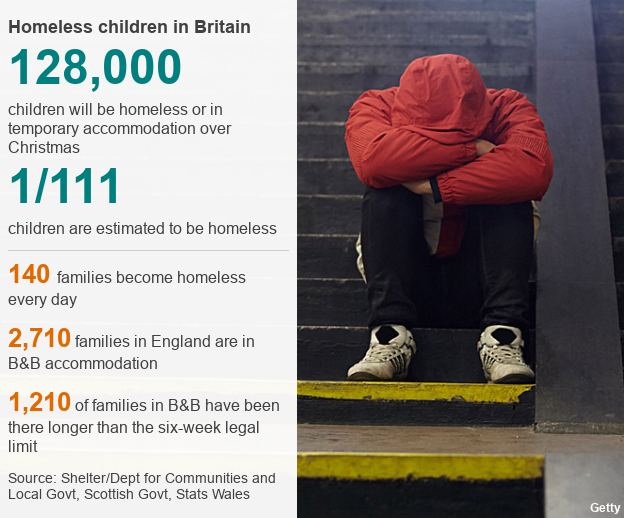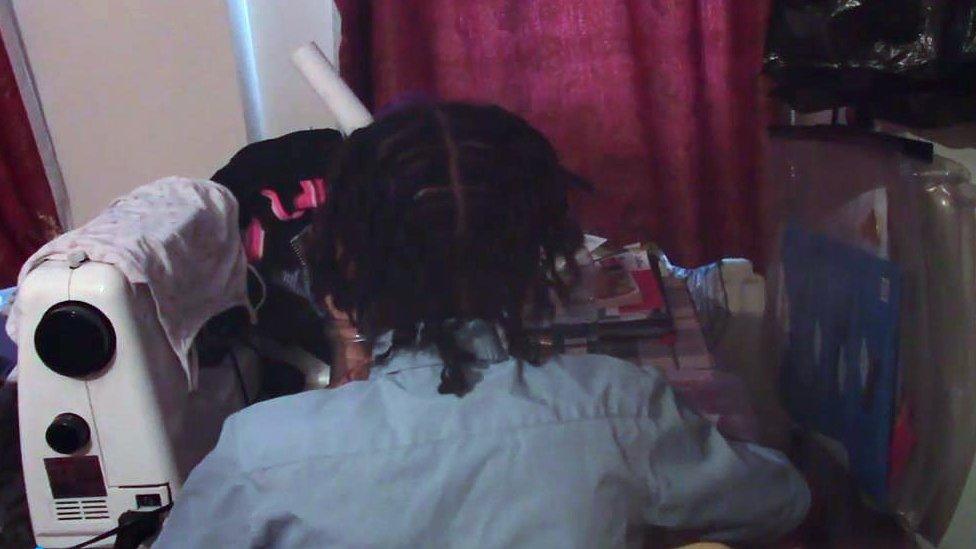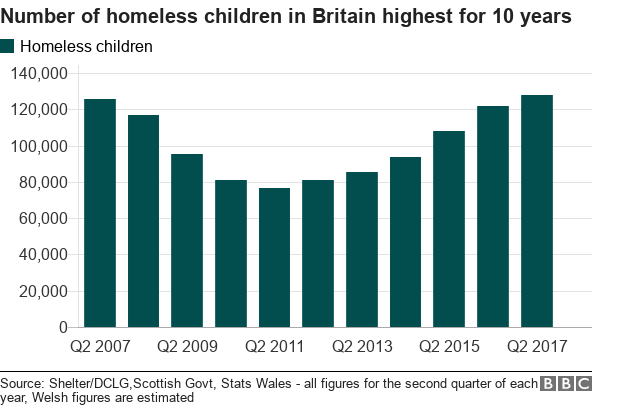'My double life going to work from a homeless hostel'
- Published

Sarah sits at a windowsill to do her homework
Mary, and her nine-year-old daughter, Sarah, are homeless and have spent the past 13 months living in a single room in a hostel.
"Nobody knows how we are living," says Mary. "No-one knows we are in this situation."
"They know we are in temporary accommodation, but they don't know we are living in a hostel - that we've got no space."
And there certainly is a lack of space. It is just about possible to walk around one side of the double bed.
There is a small table, but not enough room for mother and daughter to sit and eat a meal together.
Their belongings are piled up precariously in laundry-bag towers against the wall, and there is not a free surface in the room. Their stuff is everywhere.
Sarah has to sit cross-legged on the bed and lean on the windowsill to do her homework.
She is one of the 128,000 children in Britain who will spend Christmas in temporary accommodation this year, according to official figures - the highest number for a decade.
Very few of these will be sleeping rough, but they will be saddled with the hardships of living in temporary accommodation.

Mary and Sarah (not their real names) found themselves homeless when their landlord wanted his property back and they could not afford another deposit and rent in advance.
The office worker struggles to eat let alone cook healthy meals in the room, where just one of the cooker rings works.
"I am leading a double life because I go to work in my suit all dressed up and I go to church all dressed up, but nobody knows what I am going through."
No friends
And despite her young years, Sarah seems to want to keep her living conditions secret from her school friends too.
"I have friends and I really want my friends to come to my house, but they can't come here.
"They have to come to a nice house. So if they ask me I say I'll have to ask my mum.
"It's stopping me from having friends and hanging out."

According to housing and homelessness charity Shelter, families living in temporary accommodation are often confined to one single room, which significantly disrupts the children's ability to play or follow a daily routine
Interviews by the charity with some families in such conditions, revealed children feeling anxious, afraid and ashamed.
Mary says the practicalities of living in such a small space are very challenging.

"It's the storing of our clothes, the washing of our clothes."
Like others in similar situations, Mary struggles to stay positive.
"It's very easy to not do anything and just come back from wherever and go to bed. I'm trying so hard to fight that."
'Roof over head'
Mary adds: "What keeps us going, for me and my daughter, is our faith.
"I think if I didn't have that I would have ended up in a mental hospital."
The government says it is working with Shelter and others to end homelessness.
It is providing £1bn until 2020 to tackle the issue and putting into practice the Homelessness Reduction Act, which aims to ensure people receive the support they need earlier.
A Department for Communities and Local Government spokesman said: "Councils have a duty to provide safe, secure and suitable temporary accommodation.
"This means that people are getting help now and no family is without a roof over their head this Christmas."
Mary and her daughter have since been moved out of the hostel by their local council but only into another temporary setting.